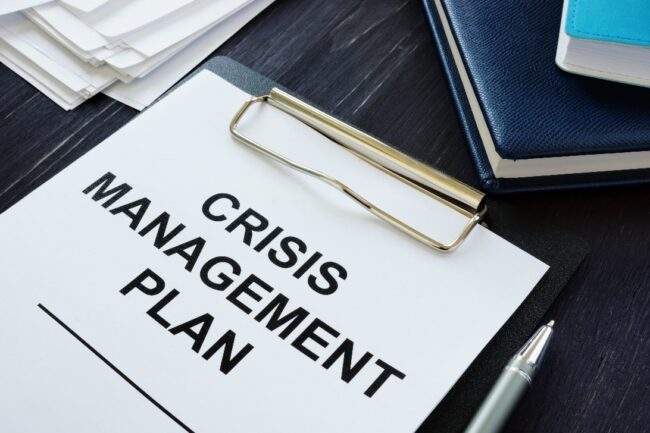In the unpredictable business landscape, crises can strike at any time, threatening the stability and continuity of operations. Whether it’s a natural disaster, a cybersecurity breach, or a global pandemic, having a comprehensive crisis management plan is essential for safeguarding the well-being of your employees, preserving your brand reputation, and ensuring the sustained success of your business. In this blog post from Shawn Romer, he will explore the critical components of building a robust crisis management plan for business continuity.
Understanding the Importance of Crisis Management
Effective crisis management begins with clearly understanding what constitutes a crisis within business operations. It encompasses a wide range of events, from natural disasters to financial downturns, each carrying the potential to disrupt normal business functions and operations. The financial and reputational costs associated with inadequate crisis management underscore the critical need for organizations to be prepared for the unexpected. Neglecting to respond effectively to a crisis can have far-reaching consequences regarding immediate damages and long-term viability.
Building Your Crisis Management Team
Assembling a robust crisis management team is a foundational step in preparing for potential crises. This team should be diverse, comprising individuals from various departments and roles, bringing different perspectives and expertise. Key stakeholders, both internal and external, should be identified and involved in the planning and execution of crisis response strategies. Clear communication lines, defined roles, and responsibilities within the team are crucial to ensuring a cohesive and coordinated response when a crisis emerges.
Crafting a Comprehensive Crisis Management Plan
A well-structured crisis management plan is the backbone of any successful response strategy. This involves conducting a thorough risk assessment to identify potential crises and engaging in scenario planning to simulate different crises. Communication protocols, covering both internal and external communications, must be established to maintain transparency and control the narrative during a crisis. The plan should be a dynamic document capable of adapting to the nature of the crisis.
Implementing Crisis Response Strategies
When a crisis hits, the immediate response is crucial. Immediate response protocols should be in place to address urgent aspects of the situation, such as employee safety and operational continuity. It’s essential to tailor response strategies based on the specific nature of the crisis, recognizing that a one-size-fits-all approach may not be effective. Flexibility and adaptability are key principles in executing crisis response strategies, allowing the organization to navigate uncertainty with agility.
Continuous Improvement and Training
Post-crisis evaluation is a critical component of crisis management, providing an opportunity to assess the effectiveness of the response and identify areas for improvement. Organizations should view crisis management as an ongoing process, integrating lessons learned from past experiences into continuously refining their crisis management plan. Regular crisis simulation exercises and training programs contribute to the preparedness of the crisis management team, ensuring that they are well-equipped to handle unforeseen challenges.
The Assurance of Business Continuity
In conclusion, a robust crisis management plan is a shield against potential disruptions and a strategic tool for building resilience and maintaining business continuity. By investing time and resources in developing and implementing comprehensive crisis response strategies, organizations position themselves to mitigate risks and emerge stronger from crises. The assurance of business continuity in the face of uncertainty is a testament to the proactive and strategic mindset that effective crisis management fosters within an organization.
